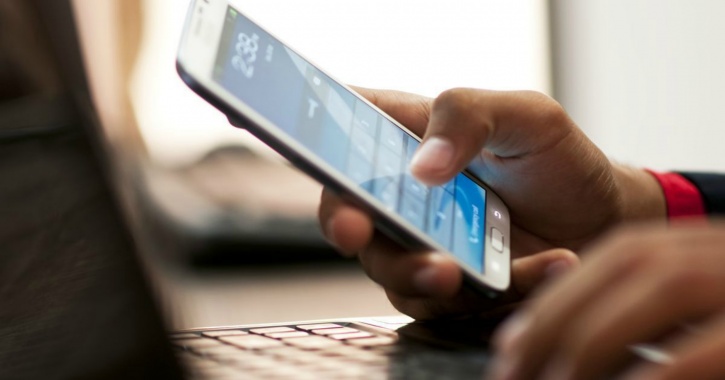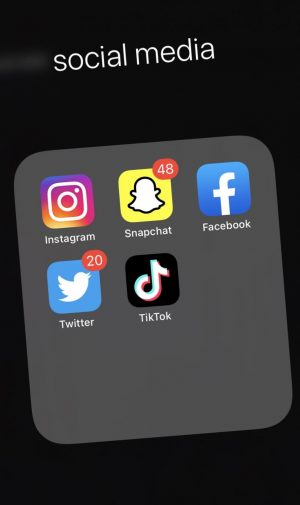TikTok: Losing Time with Loved Ones
April 22, 2022
After 30 minutes of doing homework, I deserve a reward. I pick up my phone and start scrolling through different apps. I check Instagram, Snapchat, then TikTok. Five minutes turns into one hour on my phone! I just lost one hour aimlessly scrolling through my device when I could have finished my homework already.
Electronics are taking time away from more prominent issues and moments in a person’s life. Over the years, electronics have become more familiar in modern society. When I walk through my school cafeteria, I see 80% of the room on their devices, rather than talking to their friends. They could be catching up with their peers over a meal but they are stuck in a digital world. However, owning and using electronics seems to be inescapable as they are necessary to survive and be successful in today’s world.
Phones, computers, and other devices are meant to be helpful and beneficial but they have unintended consequences. Best-selling author and Pulitzer Prize-winning reporter for the New York Times, Matt Richtel, explains “…scientists point to an unanticipated side effect: when people keep their brains busy with input, they are forfeiting downtime that could allow them to better learn and remember information, or come up with new ideas” (Richtel). The lack of rest for the brain negatively impacts its ability to learn and process new information. Electronics can inhibit the brain’s ability to learn, remember, and develop information. Individuals need time to process events and details but they cannot when they are constantly getting distracted from a screen.
Although some say that electronics are a vital part of modern life, it is equally important for individuals to disconnect. They should look up from their screens, stop their scrolling, and take in reality. Unregulated use of electronics is slowly disconnecting us from society. It is distracting, not only from simple tasks but from the world in general. What would happen if someone could look up from their screen to enjoy a night with their family, not worrying about sending an email or checking social media?
People do not need to stop using electronics completely because that would be impossible with society’s increasing demand for technology. However, setting time aside to enjoy the presence of family or friends is necessary to establish a bond with those around us. Lead consumer technology writer for the New York Times, Brain Chen, states, “The dinner table, for example, is a prime opportunity for families to agree to put phones away for at least 30 minutes and reconnect” (Chen). Putting phones out of sight and out of mind, especially at dinner, reinforces the idea of being present and aware of our surroundings. Parents should ask their children how their game went and children should ask their parents how their day at work was. Specific discussions like these help to reconnect with family and stay updated on their lives.
Ultimately, I am not saying that electronics should be erased from one’s daily routine. I am simply proposing a reduction in electronic usage. Schedule time during the day and night to relax, read a book, cook a meal, and process what has happened over the course of the last 24 hours. People need to disconnect from their cell phones, computers, and digital devices and reconnect with the world around them, myself included. Not to mention that the next time I think about rewarding myself with a cell phone break, I will think again, because most of us will not remember the time we spend on our phones. However, we will remember the conversations we had or the walks we took with loved ones.







